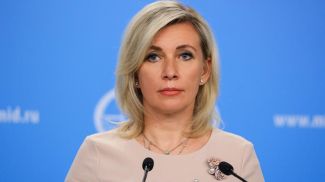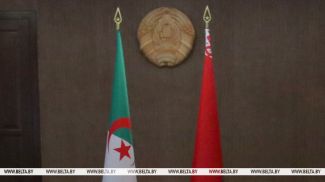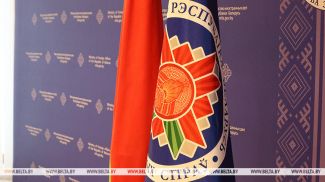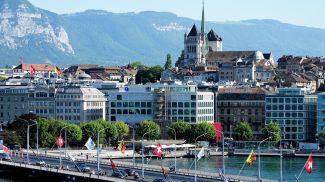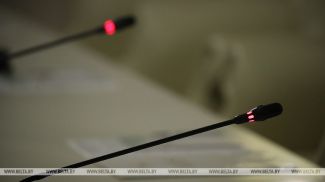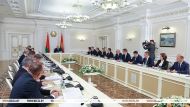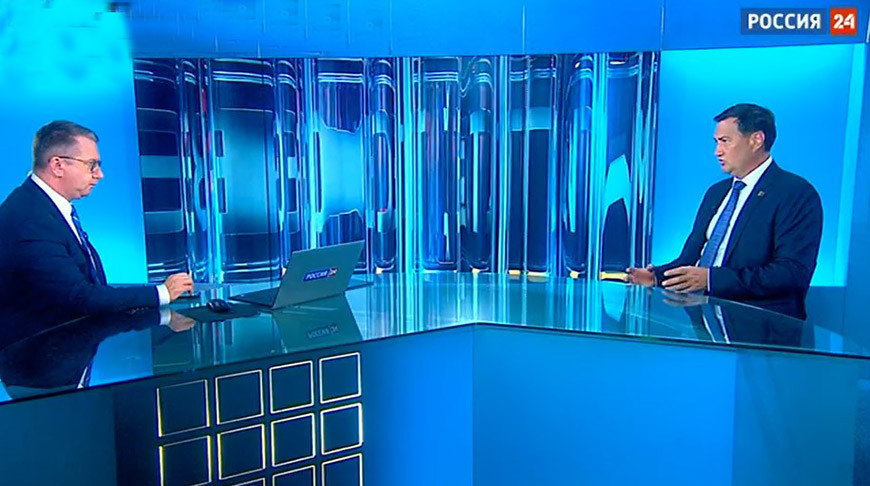
MINSK, 10 June (BelTA) - For the Baltic states, the only way to call attention to themselves in the European Union is to describe themselves as an outpost that is holding back hordes of Russians and Belarusians, Belarusian Minister of Foreign Affairs Maksim Ryzhenkov said in an interview with the Rossiya 24 TV channel, BelTA learned.
"It is very paradoxical that these states, which for a long time were in the same camp with us (the Baltic states were part of the USSR, Poland was one of the pillars of the Warsaw Pact, the Economic Cooperation Organization, an ally of the Soviet Union) have turned into the most ardent anti-Russian, anti-Belarusian critics in the European Union. All anti-Russian, anti-Belarusian most sophisticated sanctions, restrictions or political statements come from there," Maksim Ryzhenkov said.
He suggested looking at who currently holds high offices in the Baltic states or represents their interests in the EU: “It is worth exploring their biographies and biographies of their families to see that for them this is a moment of political revenge for the past. Such rabid xenophobic sentiments have their roots there. This is obvious. Statements are becoming more hostile. I see this as the signal that they are not achieving their planned results. These are marginal states.”
Belarus is open to cooperation with all nations, especially its neighbors. Belarus has waived visas for them. The Baltic states, on the contrary, are trying to complicate not only the entry of Belarusians and Russians, but also the stay. They even pass legislation for this.
“For these marginal countries, the only way to call attention to themselves in the European Union is to describe themselves as an outpost: ‘If it were not for us, the hordes of Russians and Belarusians would have flooded all of Europe’. Although if you look at illegal migrants, there are almost no Russians and Belarusians among them,” Maksim Ryzhenkov said. “There is only one goal in all this: to show that they are still capable of something in the European Union, because they are not capable of more, and of course to seek more funding. We know about the criminal schemes and criminal prosecutions in Latvia, Poland and Lithuania for the money laundering and fraud schemes in the infrastructure projects. This is how things will be here as well: one billion for the wall, then two billions for some layered defense. The contracts will be placed with certain companies, close to certain politicians.”
Take Lithuania for example: its export to Belarus was about $1.1 billion once. Not everything was Lithuanian-made. They managed to sell us what they bought in Asia, Africa and other places. Belarus transshipped about 16 million tonnes via Lithuania per year. Our businesses that worked there paid hundreds of millions in taxes. Many Belarusians loved to go to Vilnius for a weekend. Vilna was once one of the centers of Belarusianness. Now this is all gone. They need to tell their people why things are this way,” he added.
"It is very paradoxical that these states, which for a long time were in the same camp with us (the Baltic states were part of the USSR, Poland was one of the pillars of the Warsaw Pact, the Economic Cooperation Organization, an ally of the Soviet Union) have turned into the most ardent anti-Russian, anti-Belarusian critics in the European Union. All anti-Russian, anti-Belarusian most sophisticated sanctions, restrictions or political statements come from there," Maksim Ryzhenkov said.
He suggested looking at who currently holds high offices in the Baltic states or represents their interests in the EU: “It is worth exploring their biographies and biographies of their families to see that for them this is a moment of political revenge for the past. Such rabid xenophobic sentiments have their roots there. This is obvious. Statements are becoming more hostile. I see this as the signal that they are not achieving their planned results. These are marginal states.”
Belarus is open to cooperation with all nations, especially its neighbors. Belarus has waived visas for them. The Baltic states, on the contrary, are trying to complicate not only the entry of Belarusians and Russians, but also the stay. They even pass legislation for this.
“For these marginal countries, the only way to call attention to themselves in the European Union is to describe themselves as an outpost: ‘If it were not for us, the hordes of Russians and Belarusians would have flooded all of Europe’. Although if you look at illegal migrants, there are almost no Russians and Belarusians among them,” Maksim Ryzhenkov said. “There is only one goal in all this: to show that they are still capable of something in the European Union, because they are not capable of more, and of course to seek more funding. We know about the criminal schemes and criminal prosecutions in Latvia, Poland and Lithuania for the money laundering and fraud schemes in the infrastructure projects. This is how things will be here as well: one billion for the wall, then two billions for some layered defense. The contracts will be placed with certain companies, close to certain politicians.”
Take Lithuania for example: its export to Belarus was about $1.1 billion once. Not everything was Lithuanian-made. They managed to sell us what they bought in Asia, Africa and other places. Belarus transshipped about 16 million tonnes via Lithuania per year. Our businesses that worked there paid hundreds of millions in taxes. Many Belarusians loved to go to Vilnius for a weekend. Vilna was once one of the centers of Belarusianness. Now this is all gone. They need to tell their people why things are this way,” he added.




